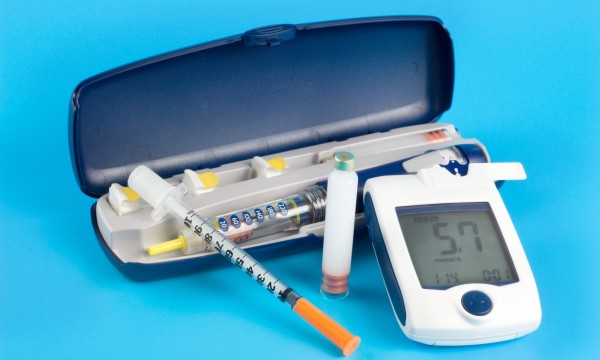Diabetics depend on insulin for survival, but every medical intervention comes with side effects. If you think insulin is causing unnecessary weight gain, here's what you can do about it—the safe way.
- Browse Categories
- All Tips
-
Home & Garden
- All
- Appliances
- Bathroom
- Cleaning
- Crafts
- Decorating
- Electrical
- Flooring
- Furniture
- Garage Door
- Gardening
- Green Living
- Heating
- Home Alarm Systems
- Home Maintenance
- Home Remedies
- Home Security
- Home Staging
- House Sitting
- Junk Removal
- Kitchen
- Lawn Care
- Lock Systems
- Moving
- Outdoor Living
- Pest Control
- Plumbing
- Renovation
- Roofing
- Snow Removal
- Storage
- Tools
- Tree Service
- Health
- Family
- Travel
- Auto
- More Tips
Your account is now active!

Can insulin affect your weight or eating habits?
October 9, 2015

Insulin: what you need to know
- Roughly one in three people with type 2 diabetes already uses insulin, often in combination with metformin or other diabetes medications that help your body use insulin efficiently.
- Though it's true that insulin used to be considered a "last resort" drug for type 2, the new thinking is that starting insulin sooner isn't a sign that you've failed at controlling your diabetes. Instead, it's becoming a smart, blood sugar-controlling move that compensates for your body's dwindling ability to produce its own insulin.
- Most people have already lost half of their insulin-producing capacity when type 2 is diagnosed. Yet fears about daily injections, weight gain and low blood-sugar episodes can lead to a mindset experts call "psychological insulin resistance."
The relationship between insulin and weight gain
Here's the good news about insulin: weight gain is not inevitable. But it can happen. In one study, people with type 2 diabetes who used insulin gained eight more pounds over 10 years than those who didn't.
Stay safe: don't alter your dose
Whatever you do, resist the temptation to skimp on insulin to drop pounds. In one study, 86 percent of women who followed this dangerous practice developed vision-threatening eye problems within four years because of high blood-sugar levels. Here's what you can do to compensate if insulin is hurting your weight:
- Daily exercise may stave off weight gain. In a 2010 study, insulin users who didn't gain weight got about a half-hour more moderate-to-intense exercise daily than those who put on pounds.
- One study found that a long-acting insulin called detemir helped 68 percent of people who used it avoid weight gain or even lose nearly a pound in three months.
Low blood-sugar episodes
- Those who use insulin may be at risk for low blood-sugar episodes if they don't eat enough or if they delay a meal, take too much insulin or exercise more than planned. Some may also have such episodes after having an alcoholic beverage.
- A "low" can leave you feeling shaky and sweaty—and can be dangerous if you're driving a car.
- New research shows that about 10 percent of people with type 2 and about 20 percent with type 1 don't feel the usual telltale signs of dropping blood sugar and as a result, are six to 17 times more likely to have levels fall dangerously low.
National advertising powered by Mediative.com. Yellow PagesTM, Walking Fingers & DesignTM, YP.caTM, Find. & DesignTM, YellowPages.caTM, Canada411TM and YP ShopwiseTM are trademarks of Yellow Pages Digital & Media Solutions Limited in Canada. All other trademarks are the property of their respective owners. Copyright © 2018 Yellow Pages Digital & Media Solutions Limited. All Rights Reserved.
More Tips
The material on this website is provided for entertainment, informational and educational purposes only and should never act as a substitute to the advice of an applicable professional. Use of this website is subject to our terms of use and privacy policy.







